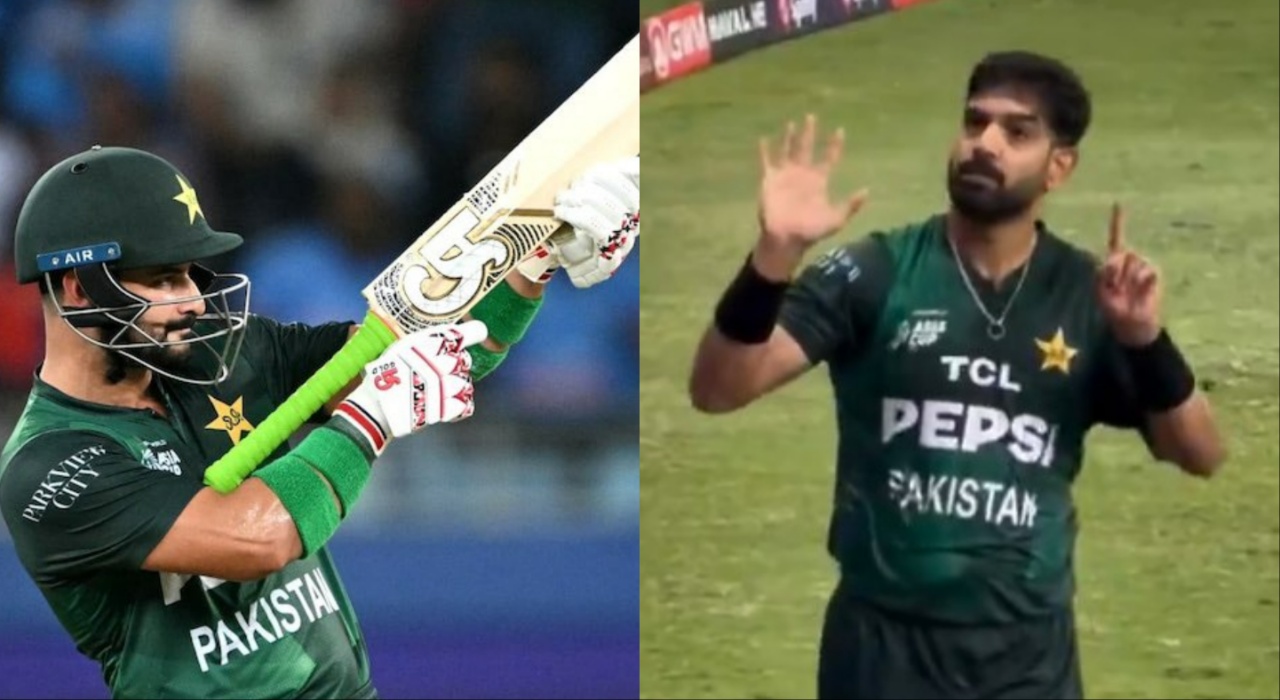The India-Pakistan rivalry in cricket has always been more than just a contest on the field. It is a stage where sport collides with history, where emotions run high, and where every boundary or wicket takes on symbolic weight.
But what we witnessed during the recent Asia Cup Super-Four clash in Dubai has crossed the line between competitive fire and outright disrespect.
Pakistan opener Sahibzada Farhan’s “AK-47 celebration” after his half-century may have been brushed aside by him as a spur-of-the-moment act, but it was far from harmless. Mimicking the firing of a gun with a bat is not a quirky celebration. It is an unsettling act, loaded with imagery of violence and militancy.
For millions of Indian fans who have endured decades of cross-border terrorism, such a gesture cannot be laughed off as ‘just cricket.’ Farhan’s defence that he “doesn’t care” how people interpret his celebration only amplifies the arrogance and disregard that was on display.
But Farhan’s gun-firing antics were only the beginning. The behaviour of Pakistan pacer Haris Rauf has dragged this episode into dangerous territory. His “6-0” hand gesture, referencing unverified Pakistani claims of shooting down Indian fighter jets during military conflict, is not just unsportsmanlike, it is inflammatory.
To then mimic crashing planes in front of Indian fans at the boundary rope shows premeditated malice, not playful banter. Rauf knew exactly what he was doing: taunting Indian supporters by trivialising something which in real didn’t even happen.
Let us be clear – this is no longer about cricketing aggression. It is about Pakistan’s players using an international sporting stage to provoke, to insult, and to peddle narratives that wound the dignity of Indian fans and the memories of our soldiers.
When chants of “6-0” echo during practice sessions, even in front of Indian journalists, it reveals that this behaviour is not spontaneous. It is a culture of mockery seeping into the team’s fabric.
So, what should be the response? Silence is not an option. The International Cricket Council (ICC) loves to project cricket as a “gentleman’s game,” but what we saw was neither gentlemanly nor game-worthy.
The ICC has fined players for far less, whether it’s over-celebrating a wicket, sending off a batter, or using inappropriate language. Yet here we are, with gestures invoking violence, terrorism, and military conflicts, being ignored so far.
If the ICC values the global spirit of cricket, it must act decisively: fines, suspensions, or bans should be on the table. Anything less would amount to endorsing such behaviour.
The Board of Control for Cricket in India (BCCI), too, must take a stand. As the financial powerhouse of world cricket and the voice of over a billion fans, the BCCI cannot afford to remain passive.
A strong demand for disciplinary action against Farhan and Rauf must be placed before the ICC. If needed, India should even consider boycotting bilateral engagements until Pakistan’s players learn that the cricket field is not a stage for war-time propaganda. Respect is non-negotiable.
